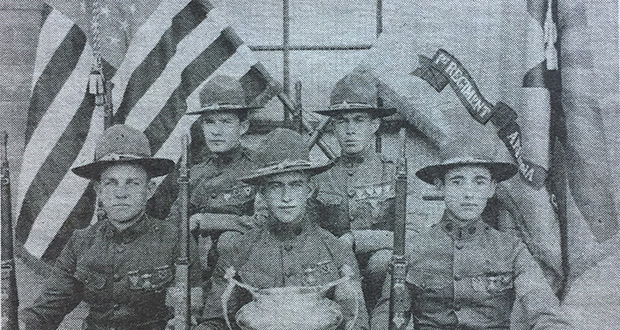Fairbank Commercial Company
Arizona Capitol Reports Staff//September 22, 2006//[read_meter]
The Fairbank Commercial Company was a 19th century emporium that thrived as long as the town thrived. When Fairbank’s palmy days were over, the store enjoyed a second life — as evidenced by this 1937 photo — as a 20th century desert oasis for Fort Huachuca, Patagonia and Nogales-bound travelers seeking gasoline and soda pop.
Probably built in 1881, this massive adobe structure was designed to house a general store and saloon. When Fairbank was granted a post office in May 1883, it was incorporated into the building as well. Hence, the Commercial Company was a busy place.
Fairbank came into existence in 1881 when tracks were laid for the New Mexico and Arizona Railroad, a short line that ran from Benson to Nogales. The town took its name from Nathaniel Kellogg Fairbank, a Chicago grain broker who was an investor in the railroad and founder of Tombstone’s Grand Central Mining Company.
Located some 10 miles west of Tombstone, Fairbank’s population never exceeded more than about 100, nevertheless it was an important freighting and supply point for the Tombstone mines. At one time, three railroads had depots there, and branch lines extended to Tombstone and Bisbee.
In addition to the Commercial Company, Fairbank was home to a quartz mill, a Wells Fargo office, a butcher shop and restaurants, and, of course, many saloons. Directly south of the Commercial Company, now the site of Route 82, was the Montezuma Hotel, a popular enterprise established in 1889 that catered to overnight travelers making railroad connections.
Fairbank is remembered for an unsuccessful train robbery which occurred on the evening of Feb. 15, 1900. Burt Alvord and Billy Stiles — both lawmen turned desperados — along with three other men, rushed the train as it made a routine passenger stop. Unbeknownst to the bandits, former Texas Ranger and legendary lawman Jeff Milton was acting as express messenger. That did not bode well for the holdup men, or for Milton himself. When he refused to turn over the Wells Fargo payroll box, the bandits opened fire and Milton’s arm was badly shattered. Bleeding profusely and knowing he might pass out, the lawman opened the opposite door of the express car and tossed the strongbox into the brush.
The robbery was aborted, but not before Milton put a bullet through one of the bandits, a fellow known as Three-Fingered Jack Dunlap. The next day Dunlap was found by a posse about nine miles out of town where his confederates had deserted him. He lived just long enough to make a confession and finger the ringleaders.
Milton was transported to a hospital in San Francisco where he was told his arm would have to be amputated. That did not sit well with the lawman, who told the doctor if he took off his arm, he would kill him. The arm was not amputated and, in time, Milton regained partial use of it.
Each outlaw was caught. Alvord and Stiles were apprehended in Mexico by the Arizona Rangers and incarcerated in the Cochise County jail at Tombstone. They escaped and Stiles was never heard from again. Alvord was captured and served time in the territorial prison at Yuma.
A schoolhouse, stable and outhouses, and a couple of residences still stand at Fairbank, now an historic site administered by the Bureau of Land Management. The Fairbank Commercial Company stands as well. Recently, its south wall collapsed. The building was shored up temporarily, and awaits restoration.
— by W. Lane Rogers. Photo courtesy of author.


















